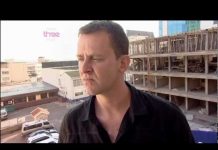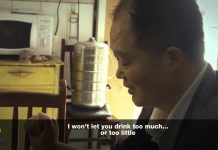In the dusty, rubbish-strewn streets of Mejicanos, a working-class district of San Salvador, the capital of El Salvador, Father Antonio Lopez Tercero points to the gang graffiti scarring the walls. Gang violence is one of the defining features of life in El Salvador today. In the capital alone, a city with a population of around two million, between 10 and 15 people are murdered daily: at least half of these deaths are gang-related and, in a climate of impunity, rarely is anyone caught. “Life is worth nothing in this country,” Father Antonio says. “There is so much impunity. Killing someone is like killing a chicken. “‘Padre Tono’, as Father Antonio is known, is one of many whose lives are affected by the violence. But he is also one of the few prepared to work with the gang members; seeing them not just as criminals, but as victims of a divided society. “It takes no effort at all to go from being a victim to being an offender,” he says. “All the resentment and accumulated senselessness of the world in which they’ve grown up means it is all too easy to cross over into violence. “Witness accompanies Father Antonio on his daily rounds, meeting those whose lives have been most affected by gang life and gang violence – people like Giovanni, a former gang leader who is now expecting his first child and is determined to go straight, and Sonia, whose son was murdered by a gang but who has yet to receive justice.
POPULAR PICKS
LATEST ADDITIONS
© Copyright 2017-2022 - Gratis Global Ltd. All rights reserved.

































